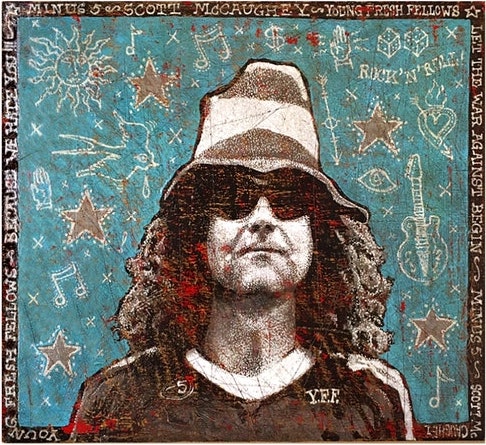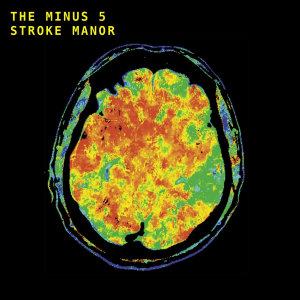![]() BY JONATHAN VALANIA Few people in this life have seen Scott McCaughey’s eyes. He’s been wearing black Ray Bans non-stop 24-7 — presumably even when he sleeps and showers — since at least the late ‘80s. Dude’s got a right. If rock n’ roll is 99% sweat equity (and one percent drugs), and it is, Scott’s a rawk star. He’s got about six or seven bands he’s playing in simultaneously at any given point in time — most of them have Peter Buck in them and the ones that don’t have Wilco in them. Paul Westerberg of The Replacements called Scott’s first band, The Young Fresh Fellows, “the best band in the world.” His next band, The Minus 5, was/is even better — an ever-morphing meta-rock thing with a constantly shifting cast of players where the only constant is that Scott writes and sings the songs. And that is a many-splendored thing because in addition to being a gentleman and a rock scholar, Scott is one of the great popsmith’s of our time, he’s also one of my favorite singers. So I was gutted by the news that he suffered a stroke in November of 2017 but very excited to hear he made a wonderful album about it. The just-released Stroke Manor — his nickname for the ICU he spent 10 days in while doctors blasted blood through his brain at firehose velocity to flush out the clot, and Peter Buck played him his awesome Beatles mix tap — is comprised of songs that occurred to him in the days immediately following the stroke. These songs pinwheel woozily with the almost-Joycean nonsense of a brain attempting to uncross its own wires. It is undoubtedly the last word in stroke-influenced psych-folk-rock. Here’s hoping he never has cause to make another. In advance of the Minus 5 performing in support of Stroke Manor at Johnny Brenda’s on Wednesday, I got Scott on the horn. DISCUSSED: The stroke, the ICU, Peter Buck, books about the Beatles, Obamacare, Rip Torn, the Mercury Lounge, Young Fresh Fellows, This One’s For The Ladies.
BY JONATHAN VALANIA Few people in this life have seen Scott McCaughey’s eyes. He’s been wearing black Ray Bans non-stop 24-7 — presumably even when he sleeps and showers — since at least the late ‘80s. Dude’s got a right. If rock n’ roll is 99% sweat equity (and one percent drugs), and it is, Scott’s a rawk star. He’s got about six or seven bands he’s playing in simultaneously at any given point in time — most of them have Peter Buck in them and the ones that don’t have Wilco in them. Paul Westerberg of The Replacements called Scott’s first band, The Young Fresh Fellows, “the best band in the world.” His next band, The Minus 5, was/is even better — an ever-morphing meta-rock thing with a constantly shifting cast of players where the only constant is that Scott writes and sings the songs. And that is a many-splendored thing because in addition to being a gentleman and a rock scholar, Scott is one of the great popsmith’s of our time, he’s also one of my favorite singers. So I was gutted by the news that he suffered a stroke in November of 2017 but very excited to hear he made a wonderful album about it. The just-released Stroke Manor — his nickname for the ICU he spent 10 days in while doctors blasted blood through his brain at firehose velocity to flush out the clot, and Peter Buck played him his awesome Beatles mix tap — is comprised of songs that occurred to him in the days immediately following the stroke. These songs pinwheel woozily with the almost-Joycean nonsense of a brain attempting to uncross its own wires. It is undoubtedly the last word in stroke-influenced psych-folk-rock. Here’s hoping he never has cause to make another. In advance of the Minus 5 performing in support of Stroke Manor at Johnny Brenda’s on Wednesday, I got Scott on the horn. DISCUSSED: The stroke, the ICU, Peter Buck, books about the Beatles, Obamacare, Rip Torn, the Mercury Lounge, Young Fresh Fellows, This One’s For The Ladies.
PHAWKER: Before we get started, I want you to know I’m a longtime fan, I go way back with you, man, I go 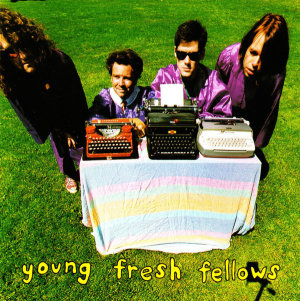 all the way back to [The Young Fresh Fellows’] This Ones For The Ladies. I’m old school.
all the way back to [The Young Fresh Fellows’] This Ones For The Ladies. I’m old school.
SCOTT MCCAUGHEY: Yeah. Yeah. I know you. [laughs]
PHAWKER: You know me?
SCOTT MCCAUGHEY: I know your name. I’ve talked to you before.
PHAWKER: Frankly I’m surprised you remembered, but yes I interviewed you backstage at Mercury Lounge for an aborted REM cover story for MAGNET MAGAZINE circa Reveal, like, 17 years ago. I’ve been a big Minus 5 fan, and have seen The Baseball Project many times, but never actually got to see The Young Fresh Fellows in the flesh.
SCOTT MCCAUGHEY: Well, your day could still come [laughs]
PHAWKER: A fella can dream, can’t he? So now, what I would like to do for this interview- I’m assuming this is cool with you, since your album is called Stroke Manor, and it’s all written and inspired by the events leading up to it — is it cool if we talk about what happened, and then dig into the new album?
SCOTT MCCAUGHEY: Yeah.
PHAWKER: So, let’s just jump in here. Tell me what happened. I’m actually very curious about this, because we’re not that far apart in age, and like, I know other people that have had strokes, and it’s like a huge lingering fear. Could you just tell me what was going on when this happened and what you recall? How did you know you were having a stroke?
SCOTT MCCAUGHEY: I was walking around in San Francisco, and I just suddenly, you know, kind of, it was- it’s hard to describe because I was totally conscious, but I didn’t know what was happening, but I knew that something was going on. I felt like- kind of like- I was gonna faint, maybe, or something, but I didn’t faint, and I just tried to slow down, and I kind of couldn’t walk anymore, and it just gradually, I was just hanging on the scaffolding by the side of the building, and just kind of waiting for it to pass, and it didn’t pass, and it just got worse and worse and worse, and I ended up lying in a puddle on the ground, [laughs] on the street in San Francisco, so, and then, you know, eventually somebody called an ambulance, and they took me to the hospital, and it went from there.
I was like ten days in the ICU, because they didn’t- the first hospital they took me to they didn’t diagnose me correctly. They didn’t want to think I had a stroke. They wanted to think that I was a drugged-out bum drunk on the streets.
SCOTT MCCAUGHEY: Despite the fact that I don’t look like that at all [laughs]. Well, I think, maybe I don’t. But maybe I do. So, they were determined to just to write me off as a drug casualty. But I was totally sober, which is saying something. [laughs] But, yeah. They had to do a lot of stuff to get me back right- they had to raise my… When they took me to the stroke hospital–which is now called Stroke Manor, to me because I just started calling it that, I don’t know why–but they had to, like, pump all this blood through my brain to create a crazy high blood pressure to try to get the clot out, to try and get it to dissolve, which worked and probably, you know, saved me to a degree, because, I mean, my brain didn’t die. More of it didn’t die than it could’ve, you know, because part of it was already dead, but it could’ve gotten worse and gotten spread more, and I think they flooded it with blood so much that they kind of forced it to keep my brain from dying, basically, you know. So there was that, and that was going on for a long time and, you know, I was pretty out of it for three or four days, until I could maybe, sort of function- maybe try to make sense and communicate with people a little bit, and stuff like that. That took a while. And then, somehow, I got in my head to start scribbling down my thoughts, or whatever I wanted to put on paper. I couldn’t really talk very well at all, so it was easier to try to write stuff, but it wasn’t easy to write anything that made sense either. [laughs] But I just forced myself to write.
PHAWKER: Physically or mentally, it was difficult? Or both?
SCOTT MCCAUGHEY: Both. I couldn’t write very well. I mean, my right side had been paralyzed. So, I wasn’t writing very well, but, you know, I could just kind of scribble it out. But my brain would keep having these ideas that I should write down, but then the idea was gone, you know. The words were there one second and gone the next second, you know. It was in chaos- my brain was in total chaos.
PHAWKER: And a lot of these words wound up being the basis for songs on the new album, correct?
SCOTT MCCAUGHEY: Yeah. That’s the whole record. It was all most stuff that I wrote in the hospital, and then a couple that I wrote after, where they were still kind of in the same mind.
PHAWKER: When you were writing these words down they were, more or less, the entire lyrics for completed songs?
SCOTT MCCAUGHEY: Yeah.
PHAWKER: Wow.
SCOTT MCCAUGHEY: Yeah, you know, I changed a few of them because some of them I couldn’t say, or sing 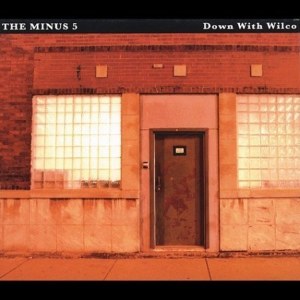 them, because they were so- they were like tongue twisters. And they still are like tongue twisters- I mean, they’re really, really hard to sing. And they’re impossible- I can’t remember the words at all. I just- I can’t remember them at all. I mean, that was the problem, I couldn’t remember any words of any songs after the stroke. I was completely wiped clean of that and- so that kind of gradually has come back to a degree, but it’s still pretty tricky to remember songs, even the ones that I’ve sung a million times. But these ones that I’m trying to sing from the new album are just- they just defy being memorized. They just won’t be memorized- at least by my brain.
them, because they were so- they were like tongue twisters. And they still are like tongue twisters- I mean, they’re really, really hard to sing. And they’re impossible- I can’t remember the words at all. I just- I can’t remember them at all. I mean, that was the problem, I couldn’t remember any words of any songs after the stroke. I was completely wiped clean of that and- so that kind of gradually has come back to a degree, but it’s still pretty tricky to remember songs, even the ones that I’ve sung a million times. But these ones that I’m trying to sing from the new album are just- they just defy being memorized. They just won’t be memorized- at least by my brain.
PHAWKER: So, when you perform them live, you’re reading them off a lyric sheet?
SCOTT MCCAUGHEY: I have a little notebook on a music stand- and I’m trying not to use it for most of the songs, because I’ve done plenty of shows without a music stand since the stroke. It took me a while to get to that point, but I started doing it. It’s pretty nerve-wracking, because you never know when the words are gonna come to me and when I’m gonna go completely blank, but I definitely need it for these songs from Stroke Manor. I kept thinking I could memorize them, but I cannot. I literally cannot.
PHAWKER: So also, just to point out the essentialness of having health insurance in America in 2019 and the fact that almost no musicians have health insurance — there is no infrastructure in place to provide for musicians the way other professions do. So were you insured at the time? I know they had to do some- they did some benefits to cover your medical costs. I’m sure if you were in the hospital for three weeks, it must have been astronomical.
SCOTT MCCAUGHEY: Yeah, I was lucky because we actually, my wife and I, had insurance through her job for awhile, and then she lost her job, and so then we went for like two or three years without any insurance at all and then the Obamacare thing came through, and we got on that. And then you have to like re-sign-up every year, you know?
PHAWKER: Right.
SCOTT MCCAUGHEY: And so, luckily, I had just re-upped before I left on that tour. So I did have some cover. I mean, you know, not like amazing, but if I didn’t have any at all- it would’ve just been a catastrophe. So, I’m all about Obamacare. I mean, I was all about it anyway, and it should be better even, but you know, it still- what it did was a lot for me. A hell of a lot for me. You know?
PHAWKER: I am also enrolled in Obamacare, so I know all about all this. And happy to hear it. So then, how long did it take to get yourself back to where you are now? How would you characterize the percentage of how far back to you?
SCOTT MCCAUGHEY: It’s hard to say, like, I’m like eighty percent back, or whatever, you know. They say that you should be able to get back close to where you were before, which I don’t feel like I’m anywhere near back where I was, but I can’t complain because I can actually function and I can talk to people and I can play guitar- not very well- but I can play guitar, you know, and piano and everything. I still know how to do it, like I didn’t lose the knowledge of how to play instruments. I’m physically not nearly as good at doing it. I feel really lucky that I can even get up and still get out and play with people, and a lot of people can’t even tell the difference, you know? So, that’s good.
PHAWKER: So you’re still a work in progress?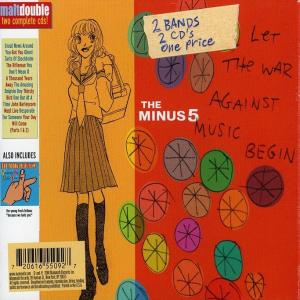
SCOTT MCCAUGHEY: Yeah.
PHAWKER: Does it continue to come back over time if you work on it?
SCOTT MCCAUGHEY: You know, I feel like I’ve kind of plateaued a little bit. Maybe it’s just like it’s so incremental that I don’t notice the change anymore, because it was really noticeable at first when like say for instance, four or five months into it, I started being able to- like I’d think of a verse of a Beatles’ song, you know, and I could actually remember it. You know, like, that was a really major thing, and now I don’t really get any major breakthroughs anymore, because it’s been a year and a half, and now I feel like I’m just kind of- I’m treading water a little bit. I don’t feel like my coordination has gotten better for playing instruments, and I don’t feel like- I can’t remember songs any better than I could like six months ago, it feels like, but like maybe- maybe it’s just I don’t notice it because it’s really incremental.
PHAWKER: As far as not remembering songs- are you talking about the lyrics, or are you talking about the chords, or everything?
SCOTT MCCAUGHEY: Lyrics. Lyrics. Lyrics. No, I could remember chords, and I could know how to play chords. That was, you know, unaffected, except for my physical ability to do it, but I was really- I was really, really lucky, because I didn’t lose my memory of how to play instruments like, you know, has happened to lots of guitar players. You know, they had to teach themselves all over again, and so I feel really, really lucky that I didn’t have to experience that, because I might have just given up.
PHAWKER: Well, I’m really glad to hear that, you sound great, and the album is great. I really do like the album. I mean, that’s not even just like, “Oh, well you had a stroke, so I have to say nice things about this album that you made.” It’s really good, and really interesting, and very weird, and I’m guessing intentionally trying to evoke this sort of mental wooziness of being in that post-stroke state.
SCOTT MCCAUGHEY: Yeah, I mean, it’s funny, because I don’t feel like it was really intentional when I wrote the songs. I just, you know, I saw the lyrics that I had written down and I picked up a guitar and started singing it or whatever. It just kind of- the words just kind of led me to the songs. Some of them sounded really different than the kind of songs I would’ve written before, I think, and other ones probably don’t sound that different, but, you know, I didn’t have to try to make them weird, you know, because it was all there. When I was trying to record them, I could only play what I could play, you know. So, my whole experience and my abilities led to the sound of the record, and the way it came out, you know. And I love the way it came out. I think it’s really representative of the experience for me and, like you said, I think it’s a good record regardless of what happened.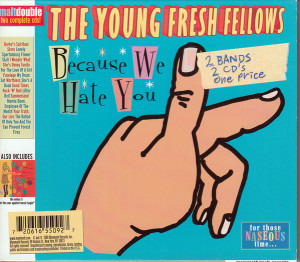
PHAWKER: Yeah. It’s not a good record for a guy who just had a stroke- it’s a good record, period.
SCOTT MCCAUGHEY: [laughs] That’s good to hear. Can I quote you on that?
PHAWKER: Absolutely. You can put that on the marquee blurb. Now, I’m assuming this is an MRI of your brain on the cover?
SCOTT MCCAUGHEY: Yes. That’s my brain.
PHAWKER: Okay, so, we only have a few minutes here left, so I’m just gonna jump around and pick out a couple of songs that have very intriguing titles, and just wanted to get your response on this, and the first one is — this is just such a great title, even though I have no idea what it means — “Pink Bag for Rip Torn.” I’m a big Rip Torn fan. What’s the 411 on that?
SCOTT MCCAUGHEY: It is a great title, and that was a bit of the reason for the song, because it was something that I heard. [Minus 5 drummer] Linda [Pitmon] had said, at some point, and this is like, you know, I would hear stuff that wasn’t necessarily what was being said. As well as what I would say- what words that came out of my mouth- weren’t necessarily what I thought I’d said. And she had something, and I don’t know what it was, but I thought she’d said “pink bag for Rip Torn,” and I said, “Hey, ‘pink bag for Rip Torn’- That’s a good title for a song.” So- [laughs].
PHAWKER: Mishearing something is a great avenue to creativity. And the lead-off track “Plascent Folk”? That is a non-existent word that you came up with in your post-stroke state, yes?
SCOTT MCCAUGHEY: Yes. I didn’t know that it wasn’t a word, but apparently, it isn’t one. And I don’t really know where it came from. That was just- like I wrote the title Plascent Folk and I just wrote the words out. That was when I was still well into the hospital, and I don’t have any idea what I was writing about on that one. I don’t- I can’t even really look at the lyrics and tell what I was thinking, but when I picked up the guitar and started playing it, it just felt like a real song that I would write. You know? I mean, the words. I don’t really know what’s going on in the words at all. But I just really like the way it sounds, and it was kind of like a really basic song that I just did really quickly. And then, I loved the way it sounded and I thought it would be a really nice beginning to the record.
PHAWKER: And “Beatles, Forever”? My understanding is that this was related to a Beatles mixtape that your friend [REM guitarist] Peter Buck made for you during your recovery, yes?
SCOTT MCCAUGHEY: Yeah. Rally early on, when I was still just really pretty out of it, he had his iPod and he rigged up a system to play the iPod in the ICU room, and then he kind of just made it to be all Beatles, just figuring that that might be something that would kind of jar something in my memory, and just make me feel comfortable or whatever, because, you know, he knows I’m such a huge Beatles fanatic, and it really worked for me, you know. And, I mean, that was the very first song I started writing in the ICU. I got to the chorus and I just started singing about The Beatles. I mean, I just started writing about The Beatles, probably because they were playing.
PHAWKER: So- and I don’t know if you recall it, but what was the first song on the tape that he made you? On the Beatles mixtape? I’m curious.
SCOTT MCCAUGHEY: Oh, I don’t know. It was like an iPod, so it was just like circling around and around and around. I mean, it was playing nonstop for days. Days and days. You know? Yeah.
PHAWKER: Also, the Beatles book that you’re holding up in the video — I actually have that book. It was the first Beatles book I ever got, that book was very informative when I was a young man as to who and what the Beatles were all about. Did you have that for a long time or is that something you just found recently?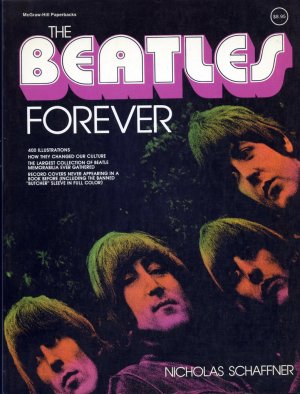
SCOTT MCCAUGHEY: I had it for a long time, and I loved the book also when I got it. And I’d completely forgotten about it, then when I was making a little video for it, I was like, “Hey, you know, there’s that book called Beatles Forever,” so I went and dug it out .
PHAWKER: I love all the female backing vocals on the album. Who is singing?
SCOTT MCCAUGHEY: Corin [Tucker, Sleater-Kinney] sings on one song. Linda does a couple of like spoken word kinda things. Jenny Conlee, from the Decemberists, sings on three or four of them. She sings on Plascent Folk and- And then, Alia Farah, who’s another friend of mine and local Portland person who I toured with in M. Ward’s band with her. She’s a great singer. She came over and did quite a bit too. So, yeah, I just gathered up my friends and they were willing to help out. And they were amazing. I couldn’t get enough of the- The female vocals were just really- they worked for me on this stuff.
PHAWKER: Me too. Good. Well, I guess we’ll just leave it at that for now. I look forward to seeing you perform at Johnny Brenda’s when you get into town, and, you know, godspeed. I’m very glad to hear that you have bounced back, and that you’re doing well, because- — well, it’s a terrible thing.
SCOTT MCCAUGHEY: Yeah. Well, thanks.
THE MINUS 5 + SUMMER FICTION @ JOHNNY BRENDA’S WED. JUNE 26TH
____________
PREVIOUSLY: I go way back with these guys, back to 2001 when they were just called Bill Ricchini [pictured, right], aka the Philly-native-turned-Brooklandian-ad-man pure-pop-for-now-people auteur/wunderkind who is, for all intents and purposes, Summer Fiction. Back then Ricchini was a dotbomb refugee who spent the unemployment benefits afforded him by his freshly-issued CDNow pink slip building a sad-sack bedroom-pop mini-masterpiece called Ordinary Time that worshipped at the altar of the three B’s — Beach Boys, Beatles and Bachrach. Critics swooned, chicks screamed, Jesus wept. He followed it up with the more-assured but-less-appreciated Tonight I Burn Brightly in 2005. After playing out that string, Ricchini took an early retirement from public music-making 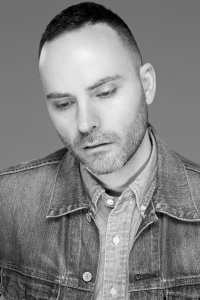 and settled into a years long hermitage in the straight world of day jobs, domesticity and crock pot cookery. In 2010, he adopted the nom de pop Summer Fiction and threw his hat back in the ring with a self-titled collection of lush, sad-pop gems, most notably the standout single, “Chandeliers,” which really must be heard while watching this wonderful video (think Wes Anderson does French New Wave). Now comes Himalaya, the official soundtrack to your summer. Impeccably recorded in Manchester with former-Philly-music-scene-fixture-turned-Mancunian-ex-pat Brian Christinzio of BC Camplight fame behind the board, the new album sounds like it was recorded in an abandoned church with nothing more than Johnny Marr’s 1983 Black Rickenbacker 330, a bottle of Pernod and a candle. The guitars ring and chime and sparkle immaculately in between pristine silences, and the vocals map the velveteen intersections of heart and ache, invariably clustering into swooning Wilsonian chorales (most notably on the glorious Beach Boys homage of the title track) and Spectorian sighs. As with every Ricchini outing, Himalaya is a sun-kissed, windows-down ride to the gilded palace of mope where, as per Mike Love’s apocryphal complaint about Pet Sounds, even the happy songs sound sad. Gorgeous stuff. Resistance is futile. — JONATHAN VALANIA
and settled into a years long hermitage in the straight world of day jobs, domesticity and crock pot cookery. In 2010, he adopted the nom de pop Summer Fiction and threw his hat back in the ring with a self-titled collection of lush, sad-pop gems, most notably the standout single, “Chandeliers,” which really must be heard while watching this wonderful video (think Wes Anderson does French New Wave). Now comes Himalaya, the official soundtrack to your summer. Impeccably recorded in Manchester with former-Philly-music-scene-fixture-turned-Mancunian-ex-pat Brian Christinzio of BC Camplight fame behind the board, the new album sounds like it was recorded in an abandoned church with nothing more than Johnny Marr’s 1983 Black Rickenbacker 330, a bottle of Pernod and a candle. The guitars ring and chime and sparkle immaculately in between pristine silences, and the vocals map the velveteen intersections of heart and ache, invariably clustering into swooning Wilsonian chorales (most notably on the glorious Beach Boys homage of the title track) and Spectorian sighs. As with every Ricchini outing, Himalaya is a sun-kissed, windows-down ride to the gilded palace of mope where, as per Mike Love’s apocryphal complaint about Pet Sounds, even the happy songs sound sad. Gorgeous stuff. Resistance is futile. — JONATHAN VALANIA

